The Israeli Emergency Trauma Bandage is a specially designed, first-aid device that is used to stop bleeding from hemorrhagic wounds caused by traumatic injuries in pre-hospital emergency situations.
Israeli emergency trauma bandage is a pressure dressing that is also a multi-functional hemorrhage control solution for emergency treatment, for professional and non-professional caregivers to control traumatic bleeding and save lives when every second counts.

Compact, lightweight, waterproof, sterile, vacuum-sealed packaging, long shelf life, and Cost Effective |
Quick, easy, and convenient for one-handed or self-application; even an injured person can self-apply the bandage with one hand |
For the treatment of traumatic hemorrhagic injuries. Multi-functional bandage for various wounds |
Small enough to carry in your IFAK pocket or a MOLLE pouch |
Can apply 13-18+ kgs of force on a wound |
Green bandage material features a pressure applicator and closure bar for maximum pressure on the wound |
Gamma Sterilized, non-adherent pad effectively applies direct pressure to any site, and removal of pain and wound re-opening |
Additional tourniquet application to further constrict blood-flow |
Available in 4 in. (NSN 6510-01-460-0849), 6 in. (NSN 6510-01-492-2275), and 8 in. (NSN 6510-01-532-6656) |
This emergency bandage consolidates multiple first-aid devices such as a sterile, non-adherent gauze pad, pressure applicator, elastic secondary dressing, and a foolproof closure apparatus to secure the bandage in place.
Gauze pad:
The Israeli bandage has an attached gauze pad – basically, a five-by-nine pad sewn into the elastic band.
Elastic band:
The long elastic band allows you to wrap a wound several times, applying sufficient pressure.
Securing bar:
The securing bar is sewn into the end of the elastic. Once you’ve wrapped the wound, you can hook the c-shaped securing bar into the bandage.
Pressure applicator:
The pressure applicator is a U-shaped bar attached to the outside of the elastic band. You can weave the elastic through the pressure bar, applying firm, direct pressure.
Loop for one-handed application:
Near the gauze pad, a loop is sewn into the bandage, allowing you to slip it over your arm for one-handed application.
Sterile wrap:
The Israeli bandage is double-wrapped to maintain sterility.
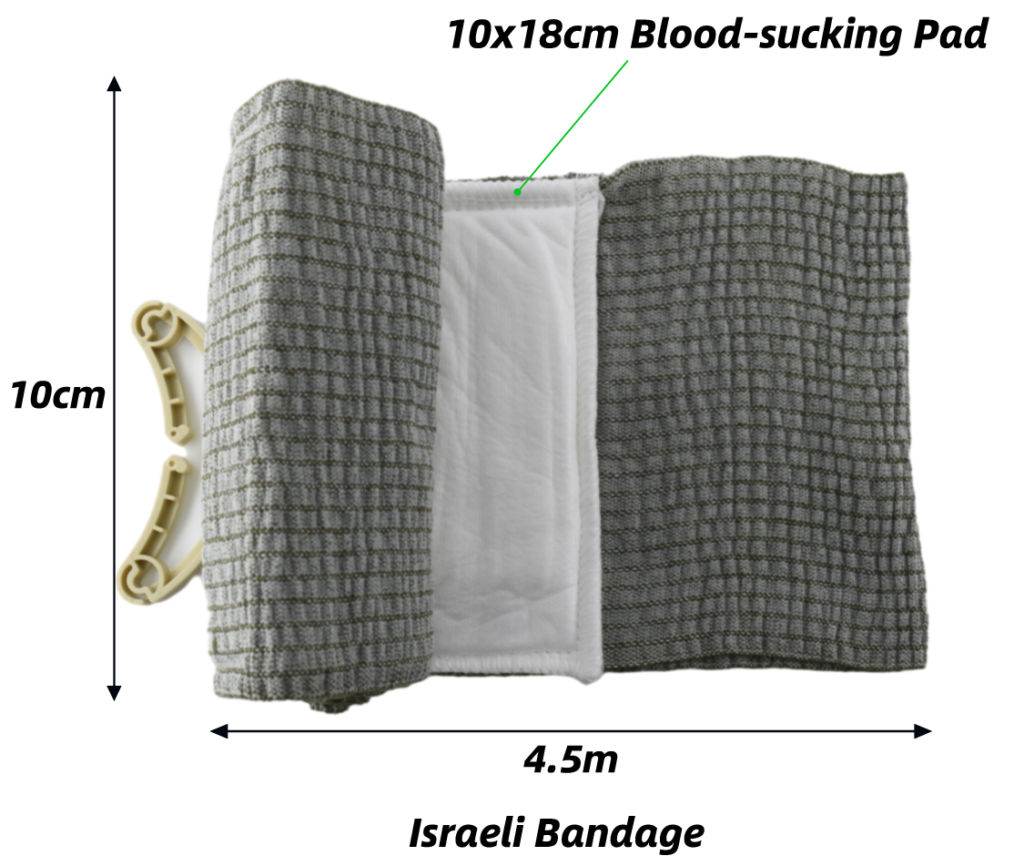
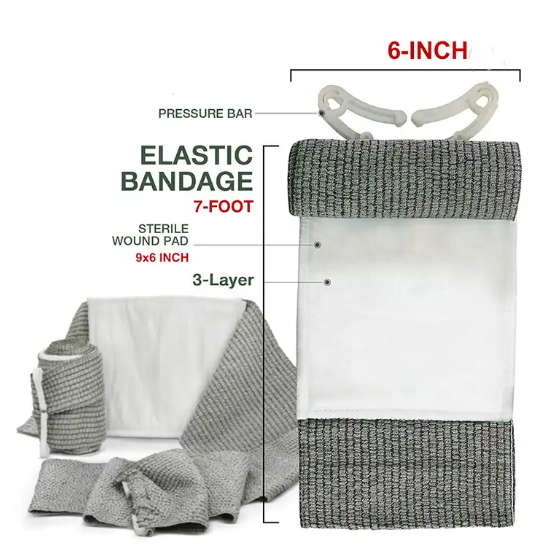
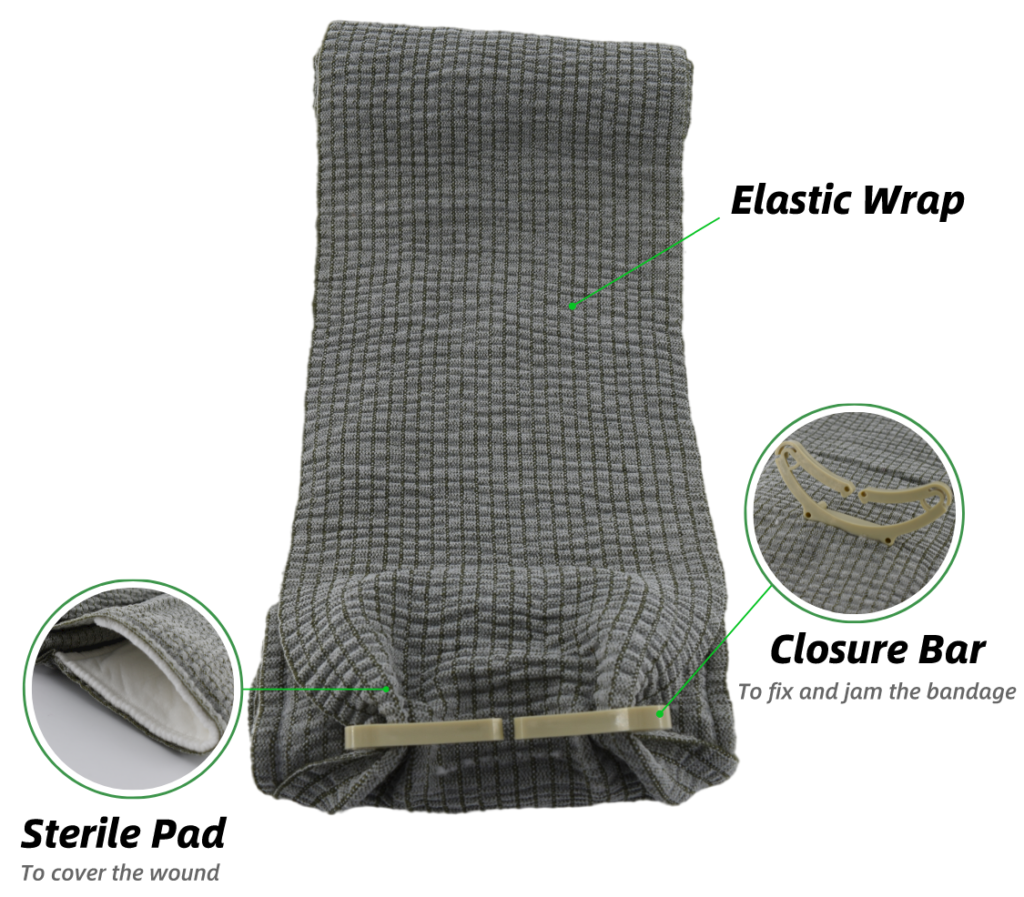
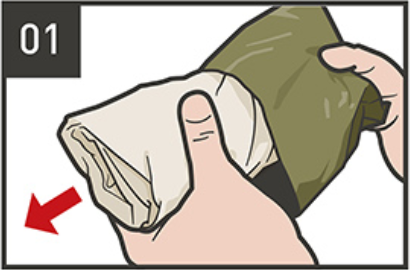
REMOVE the bandage from the pouch and packaging
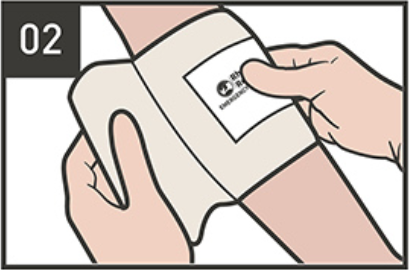
PLACE the pad directly on the wound and maintain pressure
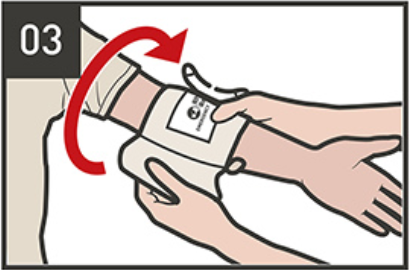
WRAP the elastic bandage around injured extremity and maintain pressure
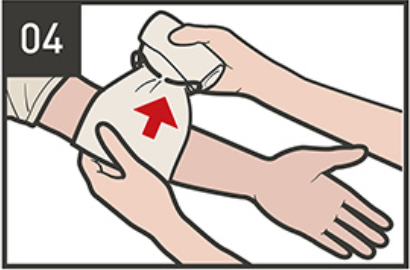
INSERT the elastic bandage into the pressure bar
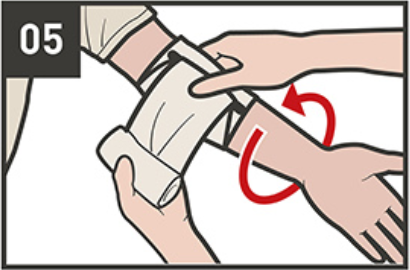
REVERSE WRAP the elastic bandage back over the top of the pressure bar
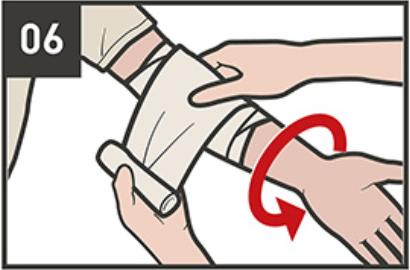
WRAP bandage tightly over the pressure bar until pad edges are covered
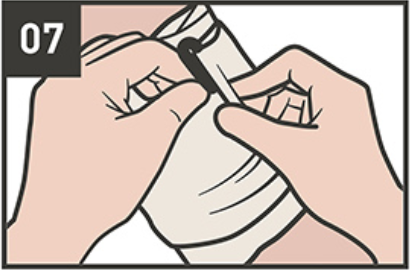
SECURE the hooking end of
the pressure bar into the elastic bandage

The stitching of our bandage car is neat and will not come off.

Using high-quality materials, the weight is heavier and the weight is more sufficient!

The overall width of the bandage is the same, and the inferior models are uneven.

The buckle is strong and not easy to break. and the inferior model is easily deformed or brokén if a little force is applied.
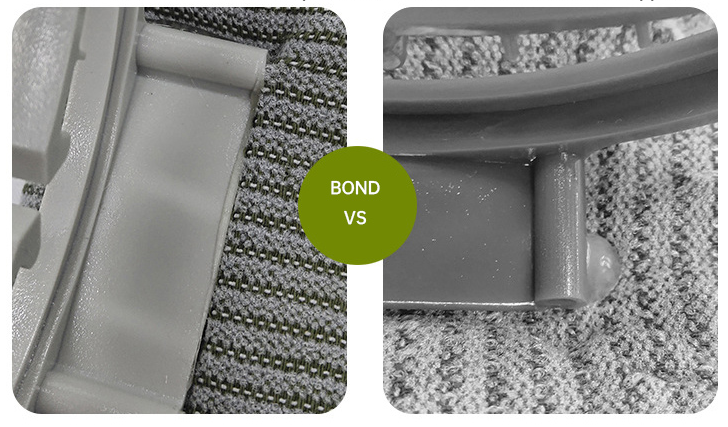
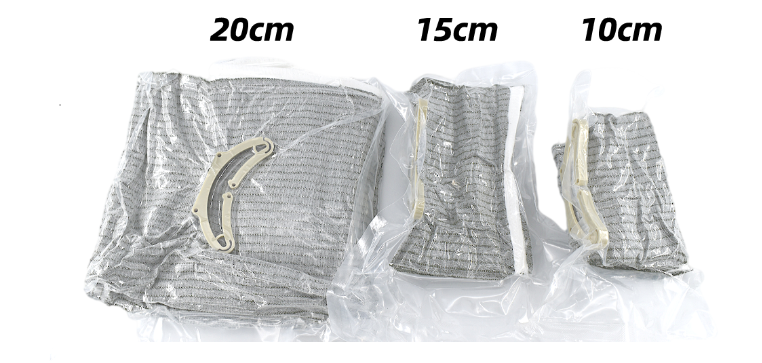


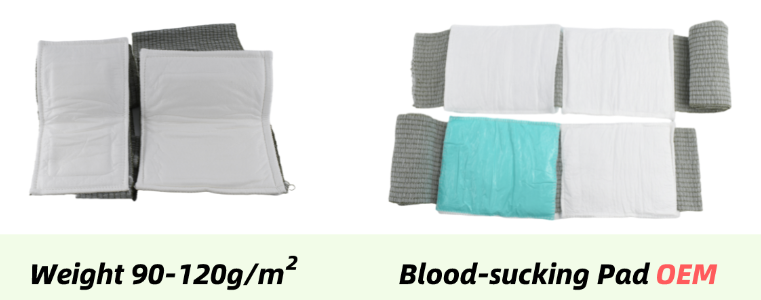
Israeli bandages and tourniquets are both used for treating severe bleeding. However, they are not interchangeable. A tourniquet is applied above arterial wounds on limbs only. An Israeli bandage is used to apply direct pressure to non-arterial wounds or heavy bleeding in places where you can’t use a tourniquet.